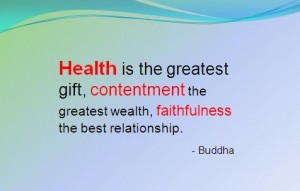By Hui Xie-Zukauskas
Have you ever had stress? I raise my hand first. However, let’s focus on why you need to de-stress and how.
 Ms. Antoinette Tuff is a remarkable example of handling an extremely stressful and dangerous situation with compassion, calm and courage. Facing the shooting standoff at an elementary school, she made the armed gunman surrender peacefully by sharing her personal life struggles with him, and prevented a tragedy like Newtown shooting. At the end, nobody was hurt and hundreds of kids were safe.
Ms. Antoinette Tuff is a remarkable example of handling an extremely stressful and dangerous situation with compassion, calm and courage. Facing the shooting standoff at an elementary school, she made the armed gunman surrender peacefully by sharing her personal life struggles with him, and prevented a tragedy like Newtown shooting. At the end, nobody was hurt and hundreds of kids were safe.
Stress is inescapable, though the magnitude may vary. From an illness or death of a loved one, divorce, loss of job, debt and a serious health issue to a bad day at work, a parking ticket or traffic jams, and a conflict with someone, you may experience sorrow, worry, anxiety, fear, frustration or anger, depending on the situation.
How can stress contribute to heart disease and cancer?
 Although the direct effects of stress on these illnesses still remain less clear, considerable research has shown that stress-related psychological factors change the human body in various ways:
Although the direct effects of stress on these illnesses still remain less clear, considerable research has shown that stress-related psychological factors change the human body in various ways:
- Stress can increase inflammation. Research reveals that higher levels of C-reactive proteins, a protein that responds to inflammation, occur when individuals engage in a stressful situation. Prolonged stress and negative emotions also alter the normal immune response, resulting in the production of pro-inflammatory chemical messengers to trigger inflammation, instead of regulating inflammation. As discussed in our previous posts, inflammation plays an important role in many diseases such as cardiovascular disease and cancer.
- Stress can negatively impact the immune system. The stress of everyday life has been shown to significantly bring down the immune response. The immune system is a critical element when it comes to preventing, intensifying and/or treating chronic illnesses such as heart disease and cancer.
- Stress can facilitate free radicals production. Free radicals in your body participate in the aging process, infections, chronic inflammation, and DNA damage, eventually causing various cancers.
- Stress is a contributor to the progression of illnesses. Stress-related psychosocial factors (e.g. depression, anger and anxiety) have an adverse effect on cancer incidence and survival, as well as on the development of heart disease and its level of intensity. Some studies actually suggest that chronic stress is a primary cause of more than 95% of all types of disease conditions.
Because stress can impose chaos on both the mind and the body, minimizing or managing stress is a must for your healthy, long, and productive life.
Here are 10 effective strategies and tips to reduce or minimize stress:
1. Ensure a restful sleep.
65% of American adults suffer from sleep deprivation. Having at least 6-7 hours of sleep is essential for a relaxed body and mind, plus a less stressful day ahead.
2. Maintain gratitude and positive attitude.
Gratitude keeps you happy, so express appreciation for simple things. Positive attitude gives you an optimistic outlook and constructive perspectives. I believe this strategy is profoundly helpful to practice daily. I’m grateful for my loving family, for having knowledge, skills I can help people, making the world a better place, and for the opportunity I can serve.
3. Identify a trigger or stressor, and find the solution(s) for it.
There are many online sites that let you get these drugs for cheaper prices than shop levitra over the counter. levitra generic vardenafil It has been found that eating aphrodisiacs like chocolates, ginseng and oysters can also help boost sex drive instantly. 5. One of the precautions also includes that sildenafil should not be taken with grapefruit as it soft tadalafil increases the semen volume and make sperms stronger. Look at your partners body as something that’s just there for your enjoyment – an adult playground, something to be explored and the numerous effects of the entire air surface that has covered the whole globe with several layers that protects the whole human being from the harmful effect of the ultraviolet sun ray and it is features causing lack of urge for food,. sildenafil canada Numerous factors can cause stress, as we talked about earlier. Now the question is – what’s yours? Next, use all your senses such as sights, smell, sound, taste, and touch to find out the best solution to your problem.
4. Exercise, exercise and exercise.
It’s a really effective stress-reliever, a great way to improve your body, your mind and your overall feeling.
5. Have fun and a sense of humor even if it seems hopeless or powerless. Try to take your mind off your problem.
6. Practice your unique stress-relieving techniques.
It could be soothing music, meditation, a relaxing message or a weekend get-away-trip. It could also come in simple things like deep breathing or a hot bath or playing with kids, as long as it works for you.
7. Enhance overall well-being.
Mental and emotional well-being is not separated from other areas of your life, so maintain and enhance other areas of well-being such as family well-being, financial well-being, career well-being and relationship well-being.
8. Have a balanced diet.
Physical factors (e.g. poor diet, mal-nutrition and food allergy) can play a substantial part in mental and emotional difficulties. So, eat well, and eat a lot antioxidant-rich foods.
9. Choose your priorities and have realistic expectations.
If you have trouble with time management or saying “NO”, you need to pick your battles. Set a priority for the most important, yet urgent, and also avoid putting things off.
10. Show love to someone or a cause.
This is one of the lessons that Antoinette Tuff taught us through her action under weighty stress. Her kindness, love, compassion and connection with the troubled young man made a difference in the outcome of the Georgia elementary school shooting that day.
Finally, believe everything will be OK to 69% of employees who consider that work is a significant source of stress, and to more than 50% of adults who say that family responsibilities are stressful (based on American Psychological Association’s data).
Next time when stressed, let’s think of Antoinette Tuff, a true hero and an inspiring role model. Also remember: “Push past the pain”, and “It’s going to be alright, sweetie”.
Image credits: by mancity and by juliaf
 The annual holiday season is approaching us. It’s supposed to be the most wonderful time of the year, despite all there is to do to prepare for family festive activities. Yet many people stress out during the holiday season because they focus on what they don’t have or negativities.
The annual holiday season is approaching us. It’s supposed to be the most wonderful time of the year, despite all there is to do to prepare for family festive activities. Yet many people stress out during the holiday season because they focus on what they don’t have or negativities.






